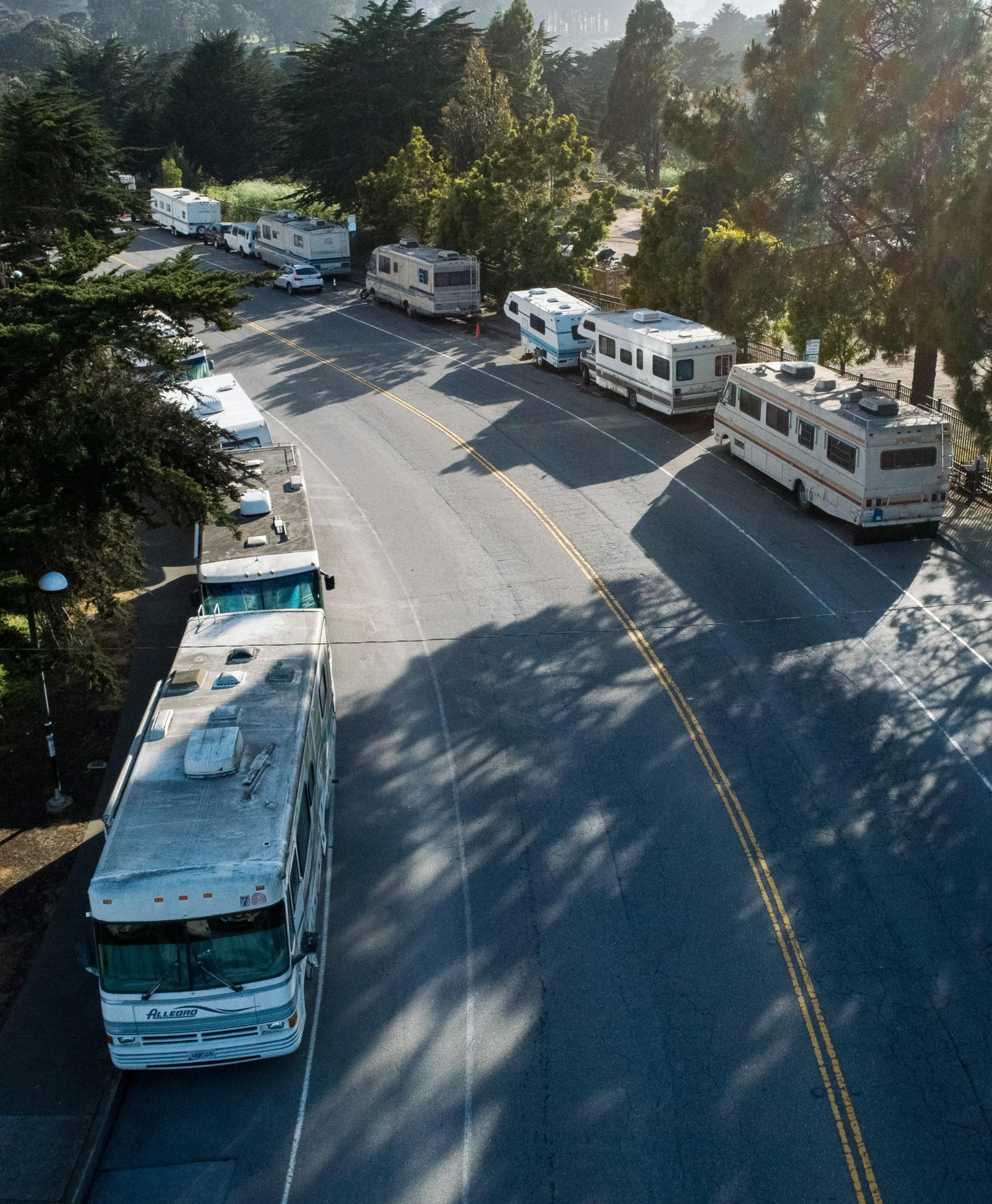Mayor London Breed is developing a proposal to enforce a citywide overnight parking ban for RVs and other oversize vehicles, The Standard has learned.
Eleana Binder, a policy manager for the nonprofit service provider Glide, said the proposal would change parking restrictions on RVs, increasing the likelihood of them being towed and destabilizing the lives of people who live in them.
“It doesn’t make sense,” Binder said. “It’s not a long-term approach to actually support people experiencing homelessness.”
The proposal calls for giving the director of the San Francisco Municipal Transportation Agency the authority to ban RV parking on specific streets, sidestepping the tradition of holding public hearings before enacting restrictions on a given street. Once the new rules are in place, vehicles in violation could be towed, though city workers would first have to offer shelter to their occupants.

Binder, a leader in the End Poverty Tows Coalition, a group calling for safe parking sites and affordable housing, said she believes the plan will harm people living in vehicles. A large number are families with children.
“They could be targeted and towed more easily,” she said. “People could be going from living in an RV with some degree of stability to being actually on the street or in a tent.”
The city already bans — but rarely enforces — overnight stays from midnight to 6 a.m.
The mayor’s office said it’s exploring its options while city workers continue offering shelter and services to people living in vehicles.
“Mayor Breed believes that people need to accept offers of shelter and services and not be allowed to stay where they are when shelter and services are refused,” said Parisa Safarzadeh, a spokesperson for the mayor.
In the eyes of the Coalition on Homelessness, more towing is not the answer.
“Right now, the city has over 700 available empty housing units,” coalition spokesperson Lukas Illa said. “But the mayor has no plan to fill these units. Instead, the mayor wants to implement a callous plan to tow family homes, using city resources via SFMTA to do the dirty work.”
The city’s housing unit dashboard shows 746 vacant with 117 move-in ready, 398 offline, and 231 getting tenants.
‘Draconian, punitive move’
Public records obtained by the neighborhood newspaper El Tecolote (opens in new tab) show that the SFMTA intended to present the plan, developed in collaboration with the mayor’s office, at the Sept. 17 board of directors meeting.
The presentation states that the transportation agency would install signs along 3,000 linear feet and conduct two enforcement efforts per month. The expected cost for street signs, enforcement, tow subsidies, and vehicle storage is $350,000 per year. The cost of police, homelessness department, and Healthy Streets Operations Center personnel is not included in that figure.

The proposal describes RVs as jeopardizing “traffic safety, curb access, circulation, and operations.”
The coalition’s members plan to stage a protest at the meeting.
Gabriel Medina, head of La Raza Community Resource Center, became involved with the challenges of housing people living in RVs in August when vehicles that had relocated to Zoo Road from Winston Drive were towed.
“We think this is a really draconian, punitive move,” Medina said. “We oppose it very strongly, and understand that they want to create a citywide solution for RVs, but they first should create a citywide solution for safe parking sites.”
The city has one safe parking site, in Bayview-Hunters Point, that is designed to shelter people living in 155 vehicles. But challenges with running power to the site, as well as bureaucratic red tape, have capped the number of vehicles at 35 for now. Meanwhile, the city has been unable to set up a safe parking site on the west side despite $6 million being allocated to the project.

About 1,000 people live in almost 500 vehicles on city streets, according to city data from July. Often people living in vehicles are reluctant to give up the stability afforded by a vehicle for offers of shelter.
Edith Alcaraz has been living in an RV near Lake Merced for the past three years. The 55-year-old mother said she heard about the city’s plans from a neighbor. It didn’t surprise her.
“The city is not going to be banning each street,” Alcaraz said. “RVs are moving from one place to another.”
If enforcement makes living in a vehicle impossible, she will sell her RV and do what it takes to get an apartment, she said.
“If they’re banning in San Francisco, I’m sure it’s just a matter of time for bans in other cities,” she said.
